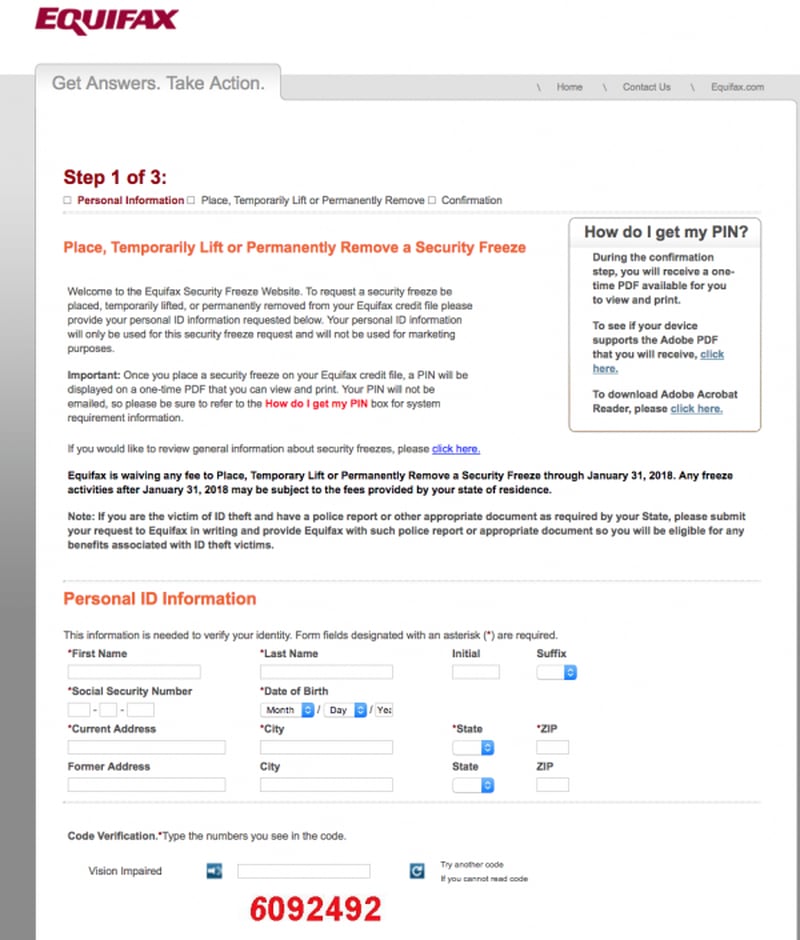Atlanta-based Equifax Inc., one of the country's three main credit reporting agencies, announced last September that it was victim to a major hack that exposed the personal information of 143 million U.S. consumers.
» RELATED: Equifax: Five things you should know about the raid on your data
Finance expert Clark Howard called the cybersecurity attack the "worst data breach in the history of the modern era," affecting two-thirds of all Americans with credit reports.
In response to the attack, Equifax offered a free credit freeze deal to consumers. The deal was initially set to expire on Jan. 31, but has been extended to June 30, NerdWallet reported.
After that date, Equifax may charge a fee to place or lift a security freeze, according to NerdWallet.
» RELATED: Equifax data breach FAQs: Answers to your biggest questions
What to know about freezing your credit
What is a credit freeze?
A credit freeze, or security freeze, restricts access to your credit report to prevent criminals from using your personal information to open new accounts in your name or apply and get loans in your name.
» RELATED: Equifax breach: How to protect yourself from what's coming next
How much does it cost?
Typically, costs range from $3 to $10 per person per bureau to freeze a credit report, but some states have higher fees. Equifax has made the service free in response to the 2017 data breach.
How to freeze your credit
You can freeze your credit online, by phone or by mail via Equifax, Experian or TransUnion. In the process, you'll receive a unique PIN that only you will have access to in regards to handling your credit report, so be sure to keep the code safe.
» RELATED: Too many or just right? Here's how that new credit card affects your credit
If you make the request by phone, your PIN will be mailed to you.
If you make the request by mail, Equifax asks that you also send copies of documents to verify your identity, such as a passport, driver’s license or utility bill.
According to NerdWallet, freezing your credit is the best way to protect your credit data and is highly recommended unless you intend to use your credit in the near future. If that's the case, NerdWallet reported, you may want to consider setting up a fraud alert.
About the Author







